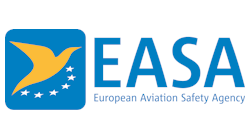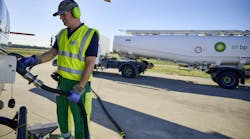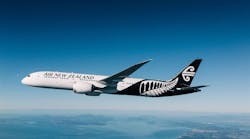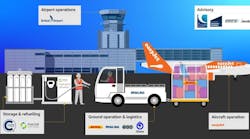Dec. 4—A Madison-based startup that makes fuel out of plants for cars and airplanes is propelling United Airlines in its effort to combat climate change.
Founded in 2002, Virent came closer to realizing its long-standing goal of bringing its products to market Wednesday.
That's because for the first time in aviation history, United piloted an aircraft full of passengers using a Virent-made, plant-based jet fuel — which burns cleaner than conventional petroleum compounds and comes from a fully renewable source, said Virent president and general counsel Dave Kettner.
Kettner, who was aboard the Wednesday flight, became president of Virent in 2019, succeeding then CEO Stacey Orlandi, who took the post in 2017.
And Virent, located on Madison's North Side and a subsidiary of Delaware-based Marathon Petroleum Corporation, uses what's known as its BioForming process to turn agricultural waste products, like corn cobs and stalks, into a compound that has the same chemical composition as gasoline and jet fuel. The process has roots in UW-Madison research.
The company, having over 40 employees, has also produced bio-based plastics, fiber and films. Virent has a partner in large companies like Coca-Cola Co. for that reason.
More than 100 people successfully departed from the Chicago O'Hare International Airport on the Wednesday flight, later landing at Washington, D.C.-based Reagan National Airport.
Passengers, besides Kettner and United CEO Scott Kirby, included prominent business leaders, government officials and other public figures.
"United continues to lead from the front when it comes to climate change action," Kirby said in a Wednesday statement. "Today's flight is not only a significant milestone for efforts to decarbonize our industry, but when combined with the surge in commitments to produce and purchase alternative fuels, we're demonstrating the ... impactful way companies can join together and play a role in addressing the biggest challenge of our lifetimes."
The Wednesday excursion, a demonstration of the Virent fuel's effectiveness, came after United conducted a test flight without passengers in October.
During both flights, United piloted an aircraft with hundreds of gallons of Virent fuel in one engine, and the same amount of a conventional compound in the other. They operated both airplane engines full-time to show there was no noticeable difference in their performance.
That was to prove that Virent's product works well as a substitute for petroleum-based fuels, and set the stage for fellow airlines to reduce their carbon footprint, United said.
"The biggest benefit (of the test) is to show the (aerospace) industry, as well as legislative bodies around the world that (renewable) aviation fuel is a reality," Kettner said.
Currently, airlines are only permitted to use fuels containing up to 50% renewable materials. Virent's product is 100% renewable.
United operated the passenger flight in partnership with aerospace company Boeing, Virent and Boston-based World Energy — the only commercial producer of renewable aviation fuels to date.
"No one entity can decarbonize aviation alone and it will require partnerships like this to ensure aviation is safe ... for future generations," said flight passenger and Boeing senior vice president of sales and marketing Ihssane Mounir.
Though Virent has yet to fully commercialize, Kettner said, United joined forces with the startup because of its technological prowess, as well as a mutual interest in proving renewable fuels work.
Virent remains in its research and development phases in 2021, Kettner said, adding those operations are solely funded by Marathon. It took a few months to make the fuel used in both test flights at Virent's current plant, versus the few minutes it would have taken if the startup had a larger commercial space.
But the Virent fuel "component," as Kettner called it, is undergoing an approval process through Pennsylvania-based ASTM International, a company that develops standards for a wide range of services and products.
That's because the fuel is "100% drop-in," meaning that significant changes to a jet engine's infrastructure are not needed for the plant-based compound to be effective, he said.
Another way to put it, Kettner explained, is that the fuel can easily replace its petroleum counterpart — and with a greater than 50% reduction in greenhouse gas emissions.
Known technically as "synthesized aromatic kerosene," the fuel is made by converting plant sugars into an oil using a complex multistep process.
Going forward, "there's lots of work to be done" before Virent is able to bring in revenue from the sale of its products, Kettner said.
But Kettner is optimistic Virent will make some announcements about commercializing within the next several months — especially as United Airlines looks to reduce its carbon emissions by 100% by 2050.
"The tech is there," Kettner said. "The product is there. The product is safe."
------
___
(c)2021 The Wisconsin State Journal (Madison, Wis.)
Visit The Wisconsin State Journal (Madison, Wis.) at www.wisconsinstatejournal.com
Distributed by Tribune Content Agency, LLC.



